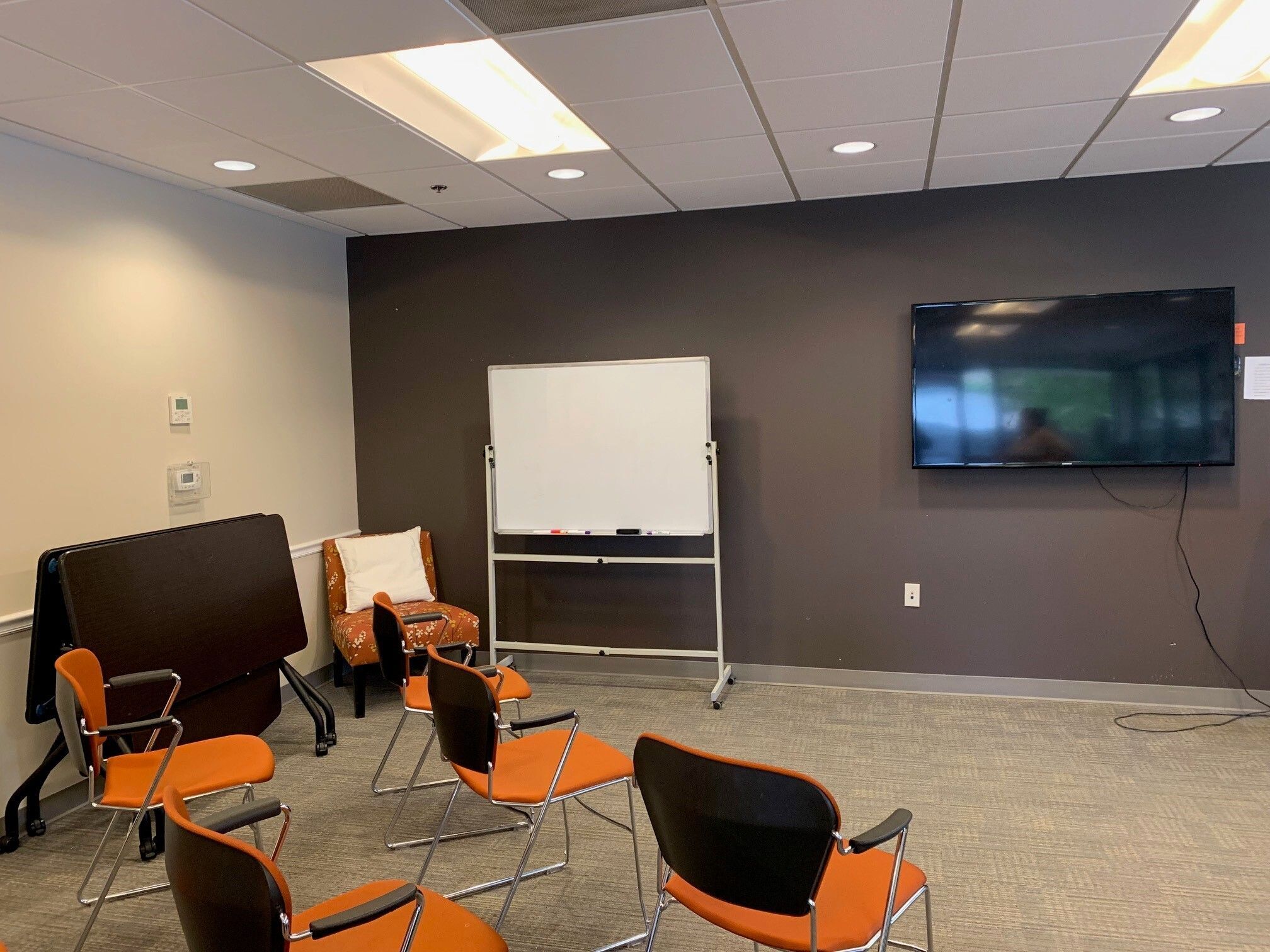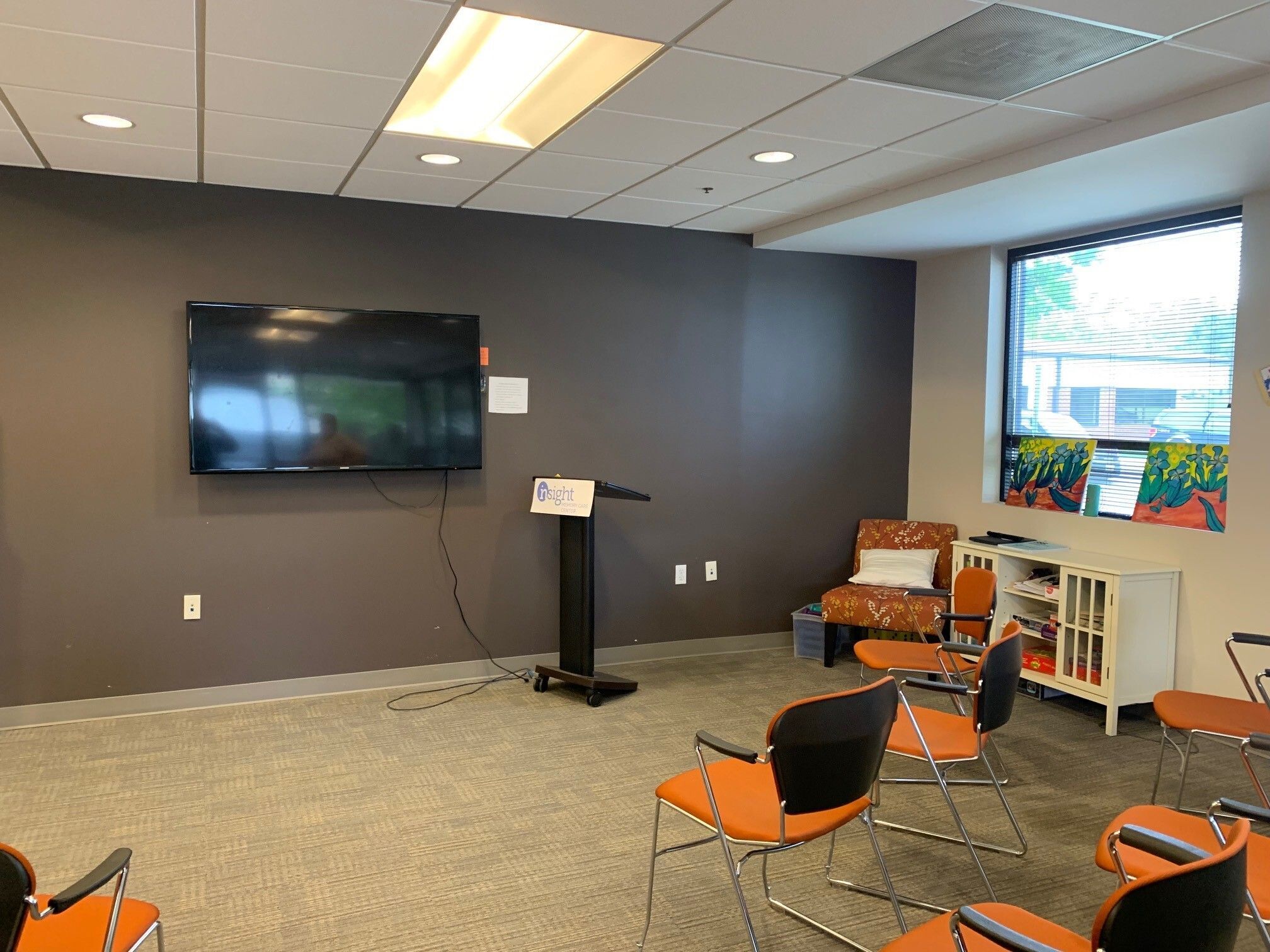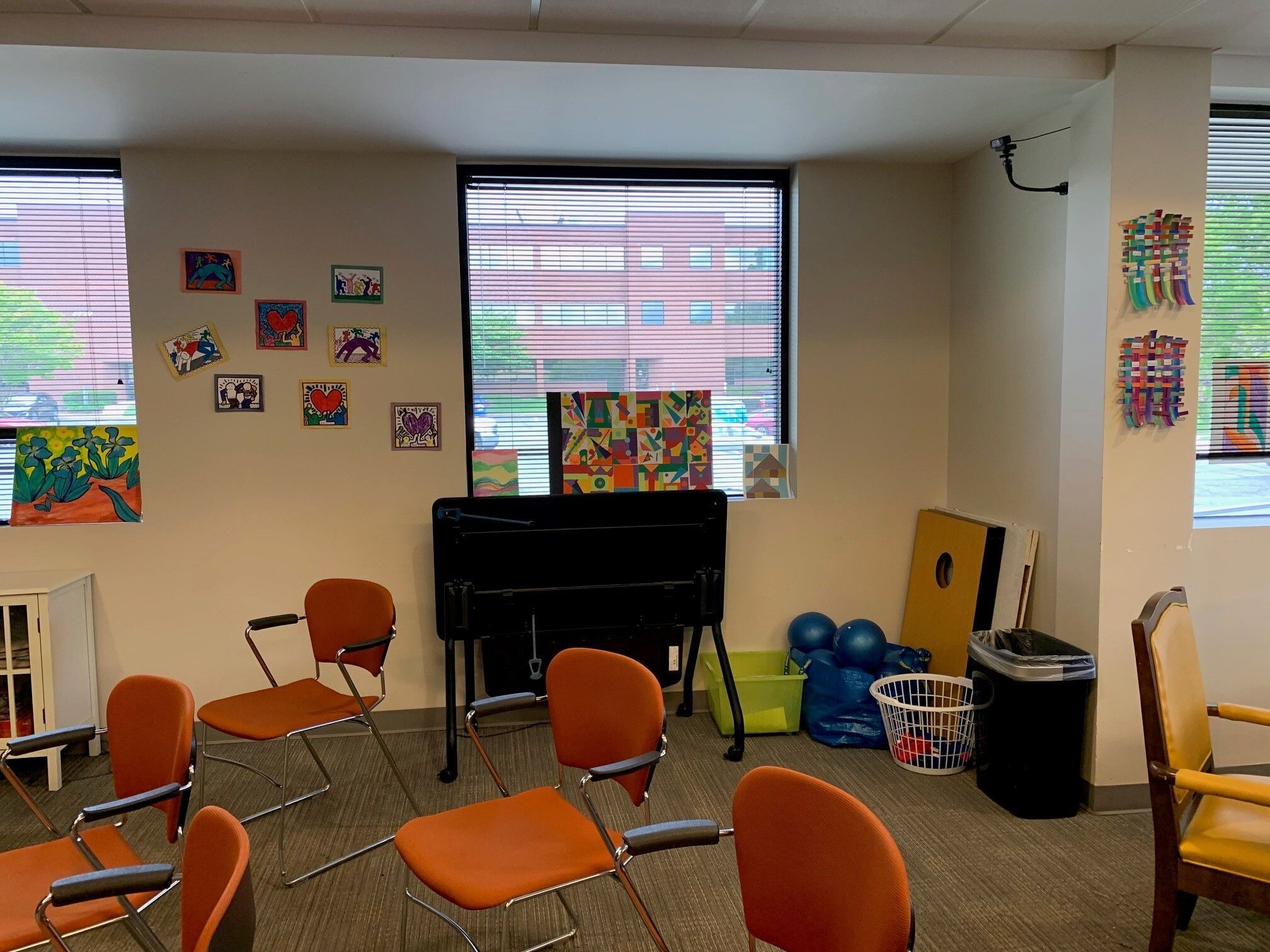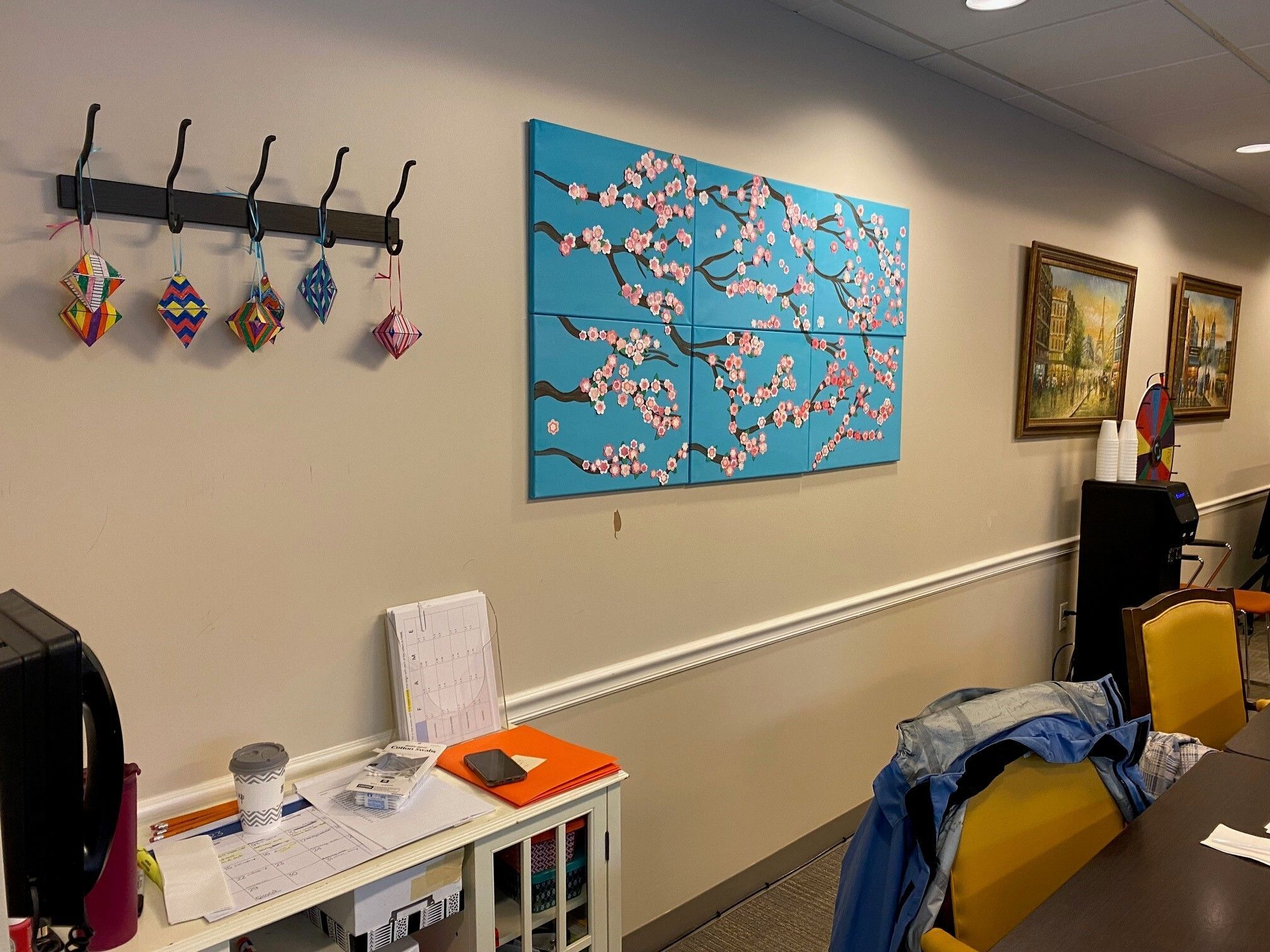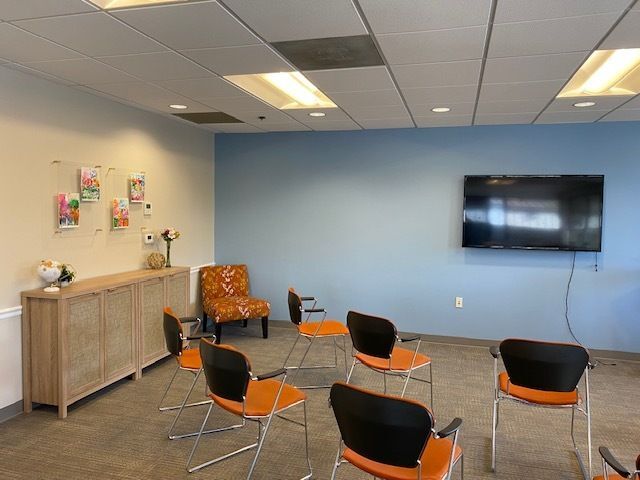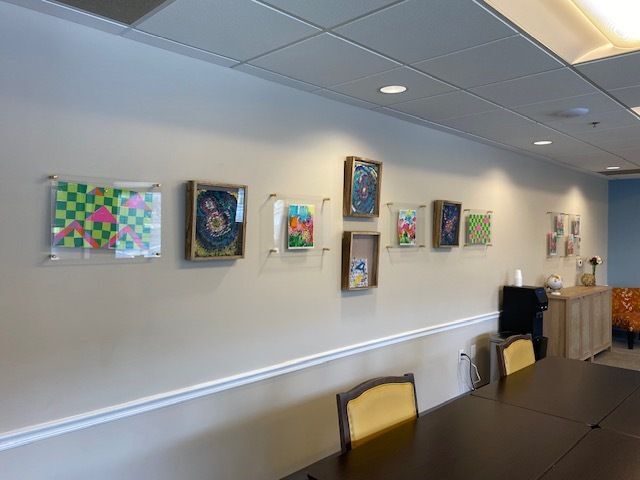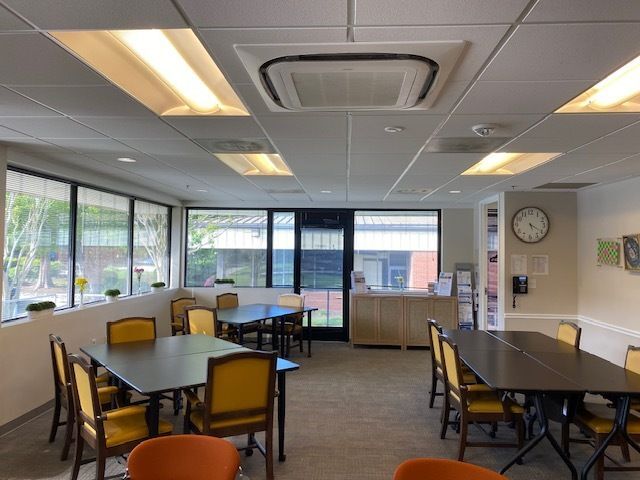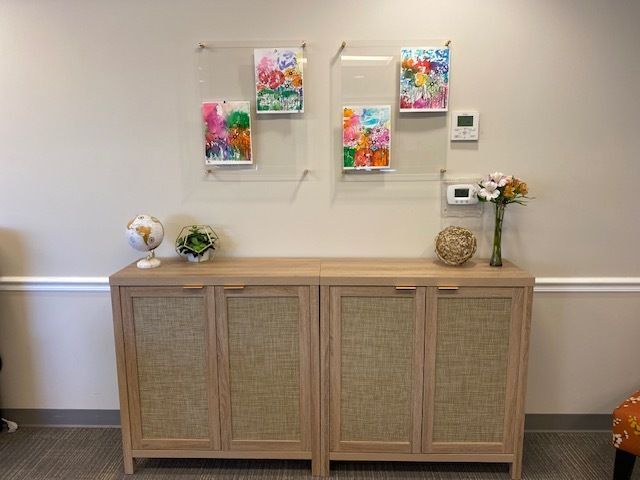
Creating Trauma-Informed Spaces
Reconnections Fairfax Updates
A trauma-informed approach can be implemented in any type of service setting or organization and is distinct from trauma- specific interventions or treatments that are designed to address the consequences of trauma.
According to SAMHSA’s concept of a trauma-informed approach,
“A program, organization, or system that is trauma-informed:
1. Realizes the widespread impact of trauma and understands potential paths for recovery;
2. Recognizes the signs and symptoms of trauma in clients, families, staff, and others involved with the system;
3. Responds by fully integrating knowledge about trauma into policies, procedures, and practices; and
4. Seeks to actively resist re-traumatization.”
The Insight team completed trauma-informed space training facilitated by the Trauma-Informed Community Network during our staff training day in April 2023 and came away from that experience motivated to apply the principles to our space. The Mazawey Education and Support Center is located adjacent to IMCC's Adult Day Health Center in Fairfax and occupies a small part of the facility. Primarily used for our early stage Reconnections program as well as education and support activities we determined the main room was in need of trauma-informed improvements.
Reconnections promotes brain health while creating connection for those living with mild cognitive impairment (MCI) or in the early stages of memory impairment. Together with professional staff, small groups participate in discussion groups, recreational therapies, learning experiences, and all have the opportunity for peer support and to socialize in a safe, stigma-free setting. A variety of activities during each session promote cognition, creative expression, movement, sense of purpose, reflection or spirituality, social engagement, and new learning experiences. Up to 15 participants with 2-3 staff members engage daily in this social engagement model program.
Often, our participants have experienced trauma after diagnosis through the stigma and grief that are often part of the dementia experience. Both the diagnosed and their families can withdraw and become socially isolated due to the symptoms they experience or the behavior changes that can be misunderstood.
Other sources of trauma for Reconnections participants may include:
- Changes in home environment (e.g. moving, loss of spouse, introduction of caregiver)
- Cognitive and emotional impacts of COVID-19
- Earlier life traumatic events
We interviewed and discussed with the participants and staff that utilize the room and learned how we could promote a sense of safety, calming and de-escalation for all that use the space. The main room was lacking adequate storage for the various program supplies stored in the space, the entryway was cluttered and uninviting, the focus wall painted a dark brown color and the wall art was displayed haphazardly without cohesive intent. We determined that the space could be improved and made more inviting to our participants and families that spend time with us each day.
The core of early-stage programming assists individuals with long-term, continuing support needs (cognitive impairment is a degenerative condition) and allows them to feel connected, safe, and engaged in the community as their cognitive abilities change. This is in-line with Insight’s commitment to person-centered care and training of our staff on the evidence based “Best Friends” approach to memory care. A safe and welcoming environment for everyone who spends time in the space was our priority.
Thanks to grant funding from Fairfax County's Trauma-Informed Spaces Grant Program we were able to make updates to our Reconnections space guided by trauma-informed design elements. The main room was outfitted with functional storage space for the variety of program supplies, the entryway was personalized with a new welcome sign, the focus wall was repainted a calming blue and wall art was framed and intentionally displayed to bring character and personalization to the space. These meaningful updates have contributed to creating a physical space that is welcoming and promotes a sense of safety and calm for participants, families, staff, and visitors. Below you can see some photos of the space before and after the changes.
Before Trauma-Informed Space Updates
After Trauma-Informed Space Updates
Insight News
Read More




